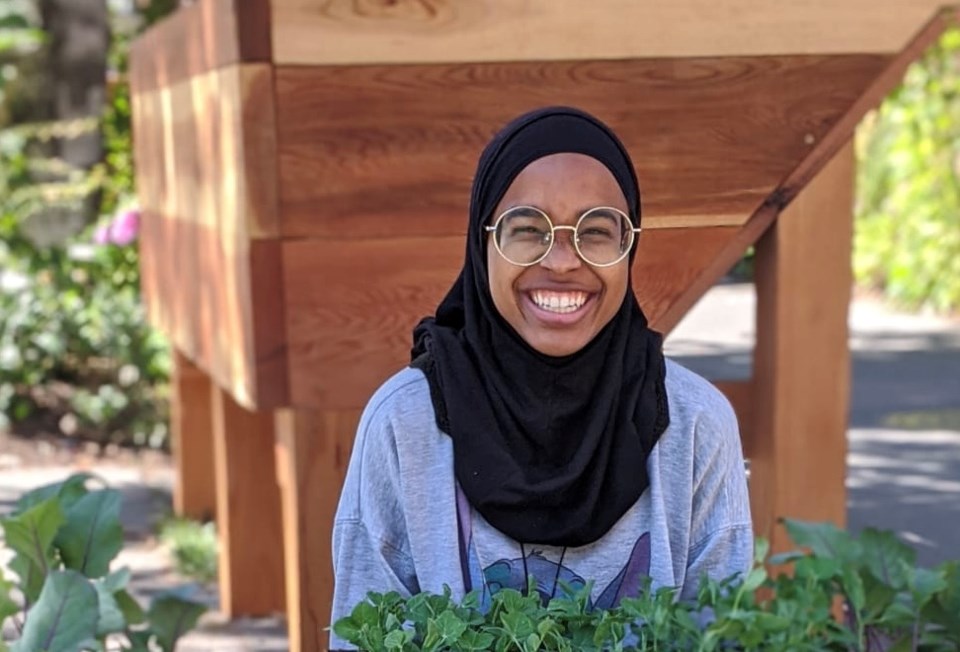Existing as a Muslim in this modern world is beautiful. Existing as a Muslim woman is a paradox to some, and a point of distress for others. Being a Black Muslim woman is not an existence, I feel, that has been explored enough to have a significant narrative, positive or negative, in the majority of minds in this western world. I could not regret any of my identities, given or chosen, the intersections they have conceived, and therefore the pain and success they have brought me, past and present.
In a world where three of my most visible identities regarding gender, race and religion acts as catalysts to inspire expressions of deeply rooted hate and scorn, I always hope to exist as an anomaly to those with that perception. In a very crude definition, you can take islam to relate to the external surrendering in service to God, i.e. how are you showing up in the world. I decided when I moved here my islam would be showing up in opposition to these narratives.
I threw myself into a life of servitude to the communities around me. My passion for people driven by, what some would consider, a naïve heart, only amplified my need to help more and to push myself past the limitations I was told I had. It was most definitely an act of defiance driven by love and a want for purpose. As a result of many influences, lived and learned, I exist with the mindset that I must work for everything I am given and I must earn my place in this world. It was understood with certainty that nothing would be given to me and that I was not perceived as a person who was deserving, from the most lavish things to the basic amenities life has to offer.
And so I created my perfect storm. An over-ambitious mindset driven through a resistive existence, directed by a simple but soft heart. I can honestly say I found true contentment in service to community. And it was those moments, fleeting but pure, of “success” that were clouding my vision to my internal, my iman. I became a person whose existence and value was defined by people and the most insecure parts of me.
Iman is walking in faith and trusting that God always has our best interests at heart. But how do you believe that God has the best plan for you when you do not believe yourself worthy of it? This is the conundrum I find myself existing in now. Though my actions taught me humility, through the neglect of my internal, I slipped into self-deprecation. In order to allow my iman to become my most dominant narrative, I have decided to disconnect from the acts of service I previously allowed to define me. But I am moving with the humility that I will have to continuously strive for what faith means, because it is only through the absence of it that I have come to understand my need for its presence.
A month ago, I knew my path, but I still existed with a confusion that permeated my being. I believed I could serve God through people. As of this moment, I have absolutely no clue what my future has in store for me, but instead of confusion, I exist with a comforting uncertainty. Insha’Allah, I will exist in service to people through God, Al-Waadud, The Most Loving.
 Asiyah Robinson was born and raised on Grand Bahama Island and moved to Lekwungen territories, known today as the Esquimalt and Songhees Nations, almost six years ago. She is a core member of Iye Creative Community, an initiative dedicated to Black sovereignty primarily through food access, centering local Indigenous ways of knowing, in regards to land stewardship and protection. She is a believer in the revolutionary power faith, love and music, and is constantly working to decolonize her thoughts, actions and processes.
Asiyah Robinson was born and raised on Grand Bahama Island and moved to Lekwungen territories, known today as the Esquimalt and Songhees Nations, almost six years ago. She is a core member of Iye Creative Community, an initiative dedicated to Black sovereignty primarily through food access, centering local Indigenous ways of knowing, in regards to land stewardship and protection. She is a believer in the revolutionary power faith, love and music, and is constantly working to decolonize her thoughts, actions and processes.
You can read more articles on our interfaith blog, Spiritually Speaking, HERE
This article was published in the print edition of the Times Colonist on Saturday, January 2nd 2021


